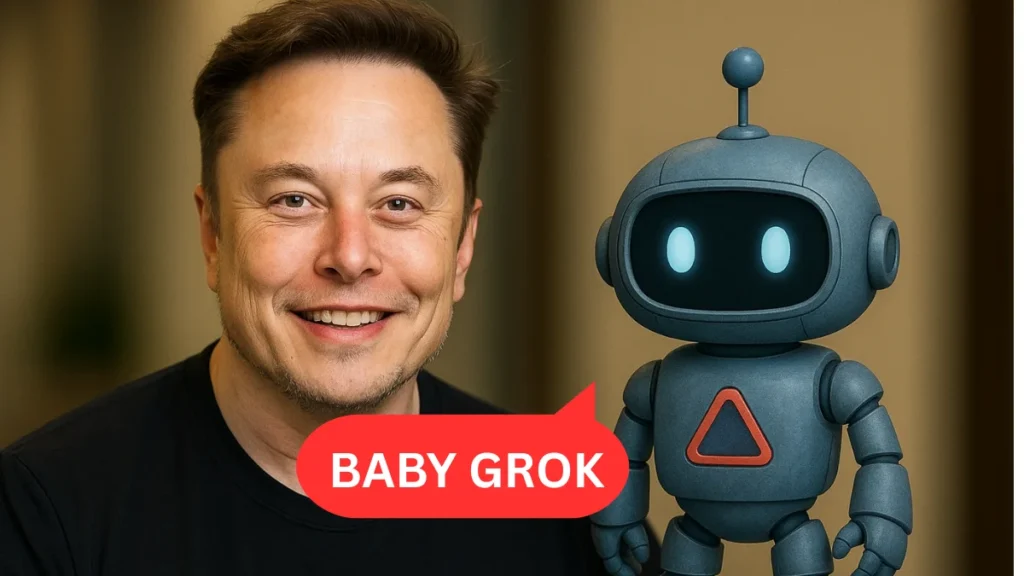Elon Musk is once again making headlines—this time not for rockets or robots, but for something a lot closer to home: your kids. His latest move through xAI is called ‘Baby Grok,’ an artificial intelligence chatbot designed specifically for children. Musk claims the project aims to provide a safe, educational, and interactive experience tailored to young users. Think of it as a digital friend that can help with homework, tell stories, and maybe even teach kids how to code.
It’s a bold attempt to bring AI into early education—and like anything Musk touches, Baby Grok is sparking heated debate.
Supporters say this could revolutionise how kids learn in the digital age. Imagine an AI that helps your child grasp science concepts, reads bedtime stories aloud, and even encourages healthy tech habits. Baby Grok, they argue, is a step toward safe, smart AI use from an early age, with strong parental controls and a learning-focused design.
But not everyone’s buying the optimism. Critics, including child psychologists and digital safety advocates, are calling for serious scrutiny. They raise red flags about data privacy, screen addiction, emotional development, and long-term cognitive effects. Is Baby Grok helping kids—or replacing real-world human interaction?
Elon Musk, ever the workaholic visionary, is all in. On July 20, 2025, he posted on X:
“Back to working 7 days a week and sleeping in the office if my little kids are away.” – Elon Musk
Back to working 7 days a week and sleeping in the office if my little kids are away https://t.co/77cc6sRCFZ
— Elon Musk (@elonmusk) July 20, 2025
That tweet isn’t just a throwaway line. It highlights how personal this project is to Musk. He sees Baby Grok as a tool he’d trust his own children with—and possibly, something that could transform digital parenting.
So what exactly does Baby Grok do? According to early reports, the chatbot will feature:
- Voice and text-based interaction
- Personalized educational games
- Age-appropriate responses and content filtering
- Activity logs and usage controls for parents
- Prompts to take screen breaks and encourage offline play
It’s all wrapped up in a user interface meant to feel friendly and intuitive—more like a buddy than a bot.
Still, the deeper concerns aren’t going away. Privacy experts are asking: how is children’s data being stored, and will it be used to train future versions of xAI models? Developmental psychologists worry that early dependency on AI interaction might delay essential social-emotional growth. And there’s the bigger question: should machines be playing such a central role in a child’s formative years?
Opponents also point out that no algorithm, no matter how advanced, can truly replace human bonding. Kids learn through messy, unpredictable experiences—something AI can simulate, but never replicate.
And even with the best intentions, AI systems have been known to glitch. What happens if Baby Grok answers a sensitive question inappropriately? Or if it unintentionally exposes kids to misinformation?
Ultimately, Baby Grok is less about what the technology can do and more about what society should allow it to do. This isn’t just another gadget—it’s a shift in how we think about childhood in the age of AI.
For now, Baby Grok is in development, with limited early access expected later this year. As testing rolls out, one thing is clear: this is more than a tech product—it’s a cultural flashpoint.
Whether Baby Grok becomes a breakthrough or a cautionary tale depends on how we balance innovation with responsibility. But one thing’s for sure—the AI revolution is now knocking on the nursery door.
